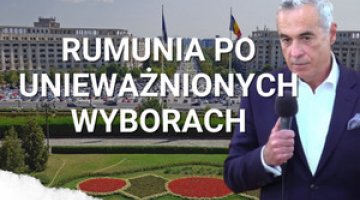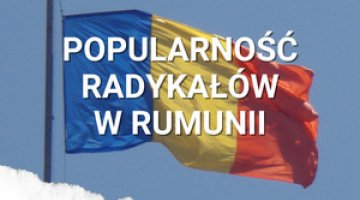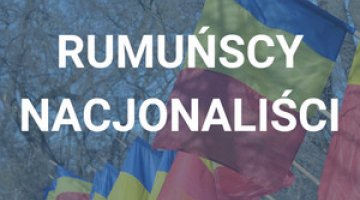Pro-European mayor of Bucharest elected as Romania’s new president
In the second round of Romania’s repeat presidential election on 18 May, Nicușor Dan emerged victorious. The independent, pro-European, centre-right politician who advocates continued support for Ukraine, secured 53.6% of the vote. He defeated George Simion, leader of the national-conservative Alliance for the Union of Romanians (AUR), who is associated with the US Make America Great Again (MAGA) movement, opposes support for Kyiv, and calls for greater national sovereignty within the EU.
Commentary
- Dan’s victory brings an end to the political crisis triggered by the annulment of the presidential election in late 2024. However, the domestic situation remains unstable. On 5 May, the government collapsed, and the previous coalition formed by the Social Democrats (PSD) and the National Liberal Party (PNL), which had been supported by the Hungarian minority party, the UDMR, disintegrated (see ‘Romania: coalition crisis resulting from the first round of the presidential election’). The immediate cause of the crisis was the elimination of the joint candidate put forward by these parties in the first round. The new leader now faces the task of forming a new cabinet. Dan, who announced his intention to begin talks with parliamentary parties on the Monday following the election, wishes to entrust this task to the acting president and former PNL leader, Ilie Bolojan. However, this nomination is likely to be opposed by the PSD, without whose support a majority government cannot be formed. At present, the most probable outcome appears to be either the restoration of the previous coalition or the establishment of a minority government comprising the PNL, UDMR, and the pro-European, liberal Save Romania Union (Dan’s former party, which supported his candidacy), with backing from the Social Democrats.
- Dan’s victory, along with Simion’s strong result, highlights growing public fatigue with the political order that has existed in Romania since the 1990s. Dan is a politician who emerged from urban civic movements and remains unaffiliated with the ruling establishment that has developed around the PSD and PNL over the past 30 years. Simion, meanwhile, only formally entered politics in 2019 but has consistently criticised mainstream parties from a nationalist perspective. Anti-establishment sentiment is likely to persist in the coming years, with the AUR particularly eager to capitalise on it. Although the party’s leader acknowledged his defeat shortly after the results were announced, his supporters are expected to fuel anti-establishment rhetoric, promoting the narrative of a ‘stolen’ election.
- Dan owes his victory to the effective mobilisation of the moderate, pro-European electorate, a process aided by the high level of polarisation among the Romanian public. Turnout in the second round reached 64.72%, the highest figure in 25 years (it exceeded 65% in 2000). As mayor of the capital, Dan consistently positioned himself during the campaign – in sharp contrast to his rival – as a guarantor of Romania’s pro-European course. He also succeeded in winning over a significant segment of the diaspora, securing 44.2% of the votes cast abroad — a group that has traditionally favoured candidates from the radical right, with conservative and nationalist leanings. A record 1.63 million Romanians voted abroad, accounting for 14.2% of the total electorate. While Simion still secured more votes than Dan among the diaspora, his lead was notably smaller than in the first round, when he had received 60.79% support. Between the two rounds, the Bucharest mayor remained highly active in the media, including on social media platforms, which significantly boosted his domestic recognition. He took part in numerous televised debates, although he faced Simion in only one of them, in which he clearly outperformed his opponent. The AUR leader persistently refused to join such programmes, claiming, among other things, that the journalists organising them aimed to damage his public image.
- The outcome of the election was met with strong approval in Moldova, where Dan had received open backing from the ruling pro-European Party of Action and Solidarity (PAS), led by President Maia Sandu. The Moldovan authorities, for whom Romania is a key international partner and main advocate within the European Union – particularly in light of Chișinău’s ongoing accession negotiations – had feared that a Simion victory would weaken Bucharest’s standing in the EU. PAS, which offers Ukraine unconditional support, was also alarmed by the AUR leader’s declarations suggesting a halt to assistance for Kyiv. Furthermore, the government in Chișinău expressed concern that Simion’s potential assumption of office – given his entry ban to Moldova and overt hostility towards PAS – would damage bilateral relations and undermine the party’s position ahead of the parliamentary elections scheduled for the end of September. These concerns were shared by a significant portion of the Moldovan public, which had a direct impact on the second-round results of the Romanian presidential election held in Moldova. With approximately 40% of its residents holding Romanian passports, as many as 88% of those who voted supported Dan.
A biographical note on the Romanian president-elect
Nicușor Dan (pronounced Nikuszor Dan) was born in 1969. He graduated from the prestigious École Normale Supérieure in France – one of the country’s leading grandes écoles – and holds a PhD in mathematics from the University of Paris. He returned to Romania in 1998 and became involved in civic activism. In 2006, he founded the Save Bucharest Association, one of Romania’s first urban movements. The organisation focused on protecting the capital’s cultural heritage and green spaces, fighting corruption among officials, and countering chaotic property development. In 2015, he transformed the association into a political platform, and a year later expanded its activities nationwide by founding the Save Romania Union (USR). Dan envisioned the USR as a party committed to fighting corruption and addressing the state’s systemic and structural issues, while deliberately avoiding clear positions on ideological or cultural matters. In 2017, Dan left the USR due to internal disputes between liberals and conservatives over the party’s direction. In 2020, he was elected mayor of Bucharest with the USR’s support and was re-elected to the post in 2024. He has long been in a relationship with Mirabela Grădinaru, with whom he has two children.





